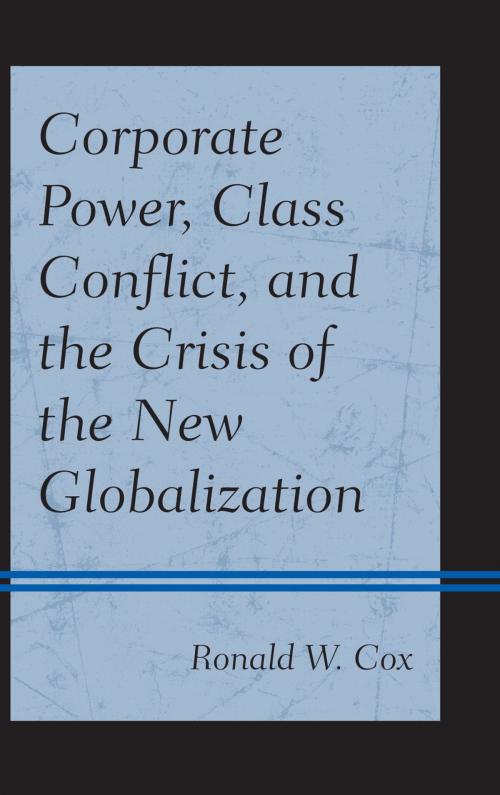Corporate Power, Class Conflict, and the Crisis of the New Globalization
Nonfiction, Social & Cultural Studies, Political Science, Politics, Economic Conditions, International, International Relations| Author: | Ronald W. Cox | ISBN: | 9780739187685 |
| Publisher: | Lexington Books | Publication: | January 14, 2019 |
| Imprint: | Lexington Books | Language: | English |
| Author: | Ronald W. Cox |
| ISBN: | 9780739187685 |
| Publisher: | Lexington Books |
| Publication: | January 14, 2019 |
| Imprint: | Lexington Books |
| Language: | English |
Transnational corporations have used their market and political power in the U.S., the European Union and Japan to expand global production on terms that are highly favorable to corporate interests. Through a detailed history of the establishment of global value chains, Ronald W. Cox examines how corporations have internationalized production by working directly with political elites to establish terms of investment and trade that facilitate working class exploitation. He also examines the political implications of the growing gap between the global rich and the working class, including the increasing illegitimacy of corporate-backed governments in the United States and the European Union. The author concludes the book with suggestions for how the global working class can fight for their own interests in the context of the rising threats of far-right extremism and neo-fascist political movements.
Transnational corporations have used their market and political power in the U.S., the European Union and Japan to expand global production on terms that are highly favorable to corporate interests. Through a detailed history of the establishment of global value chains, Ronald W. Cox examines how corporations have internationalized production by working directly with political elites to establish terms of investment and trade that facilitate working class exploitation. He also examines the political implications of the growing gap between the global rich and the working class, including the increasing illegitimacy of corporate-backed governments in the United States and the European Union. The author concludes the book with suggestions for how the global working class can fight for their own interests in the context of the rising threats of far-right extremism and neo-fascist political movements.















